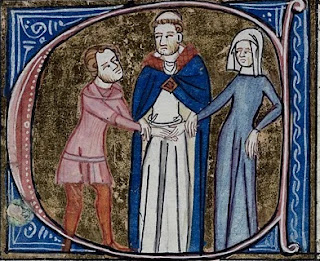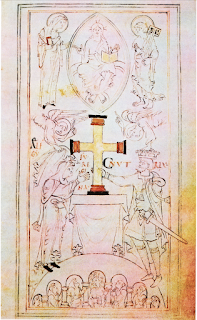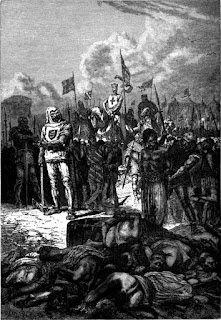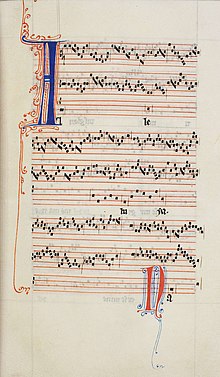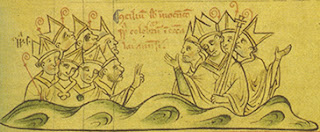 |
| Debate during the 4th Lateran Council |
Despite Peter Lombard's Sententiæ making the case for marriage not needing an officiant or consummation, the Fourth Lateran Council of 1215 changed all that.
Pope Innocent III spent years arranging the Council. His purpose was to make necessary reforms, and to commit to liberating the Holy Land from non-Christian rule. Innocent wanted to make sure that the changes made were disseminated across all of Christendom, so hundreds of representatives were invited from all dioceses and abbeys. Seventy Canons resulted, covering topics from Jews not holding office to marriage to not appointing competent persons to the priesthood. The decisions on marriage are today's topic.
It is not until Canon 50 (of a total of 70) that marriage is first discussed, regarding consanguinity. Canon 51 is our focus today, however, since it addresses the idea of clandestine marriage. A brief summary says:
Clandestine marriages and witness to them by a priest are forbidden. Marriages ... must be published in the churches by the priests so that, if legitimate impediments exist, they may be made known. If doubt exists, let the contemplated marriage be forbidden till the matter is cleared up. [link]
The canon declares that any children of a union not properly contracted/announced/witnessed be considered illegitimate. Also, a priest who performs such a union without first assuring that no impediment to the union exists should be suspended for three years. On the other hand, if someone were to try maliciously to create or falsify an impediment, the perpetrator should be punished.
Tomorrow we will go back to Canon 50 and the consideration of consanguinity.

